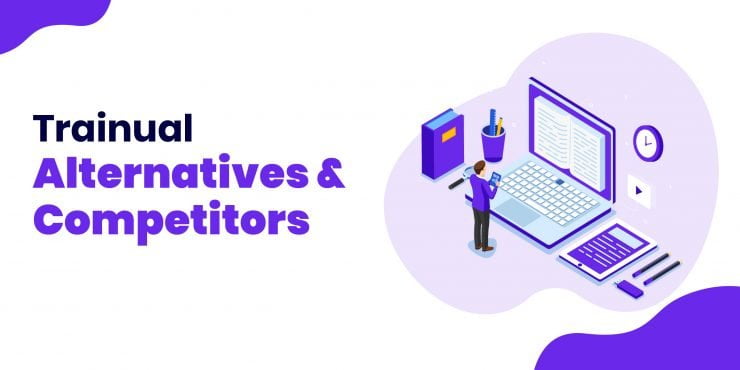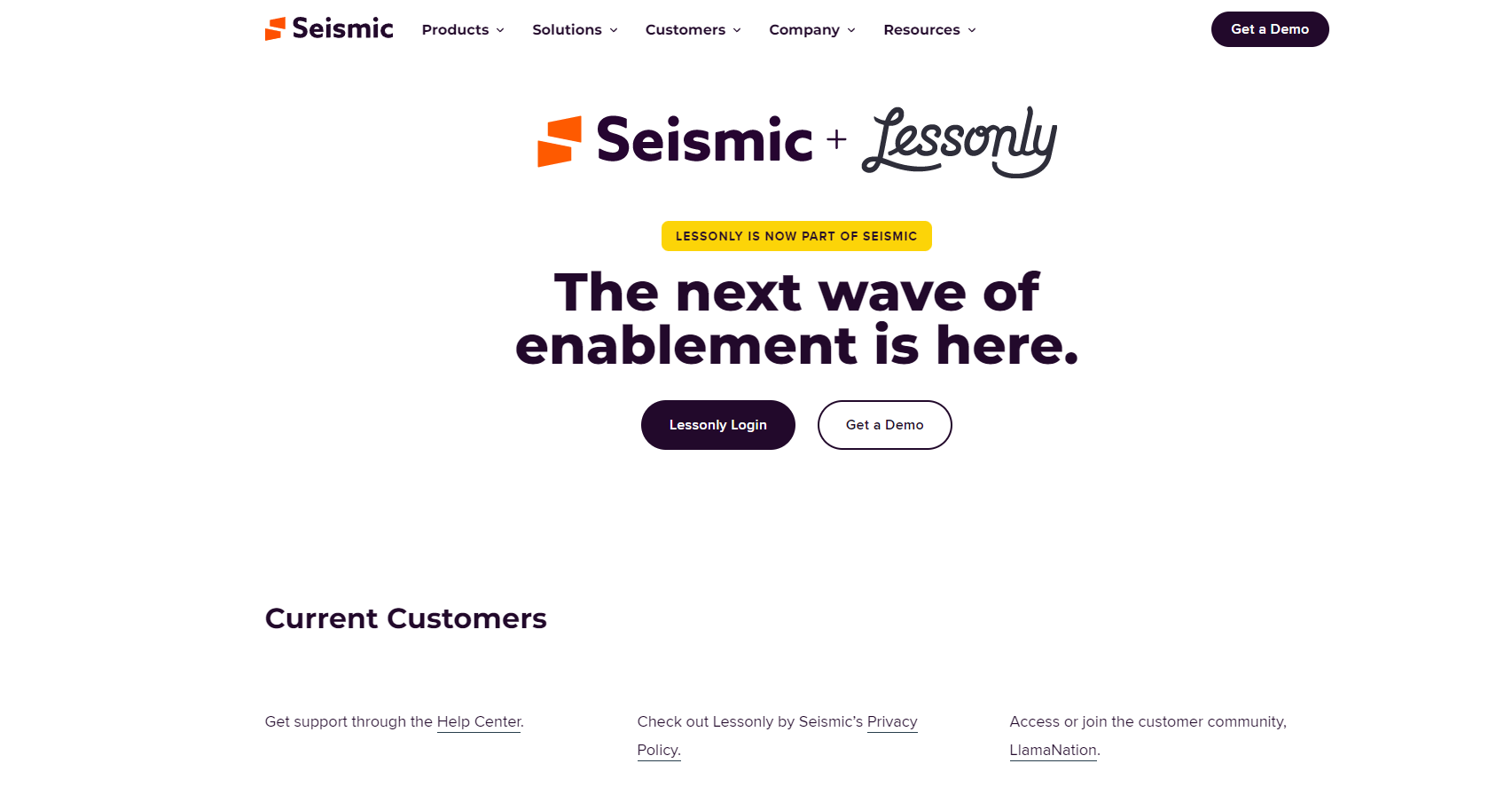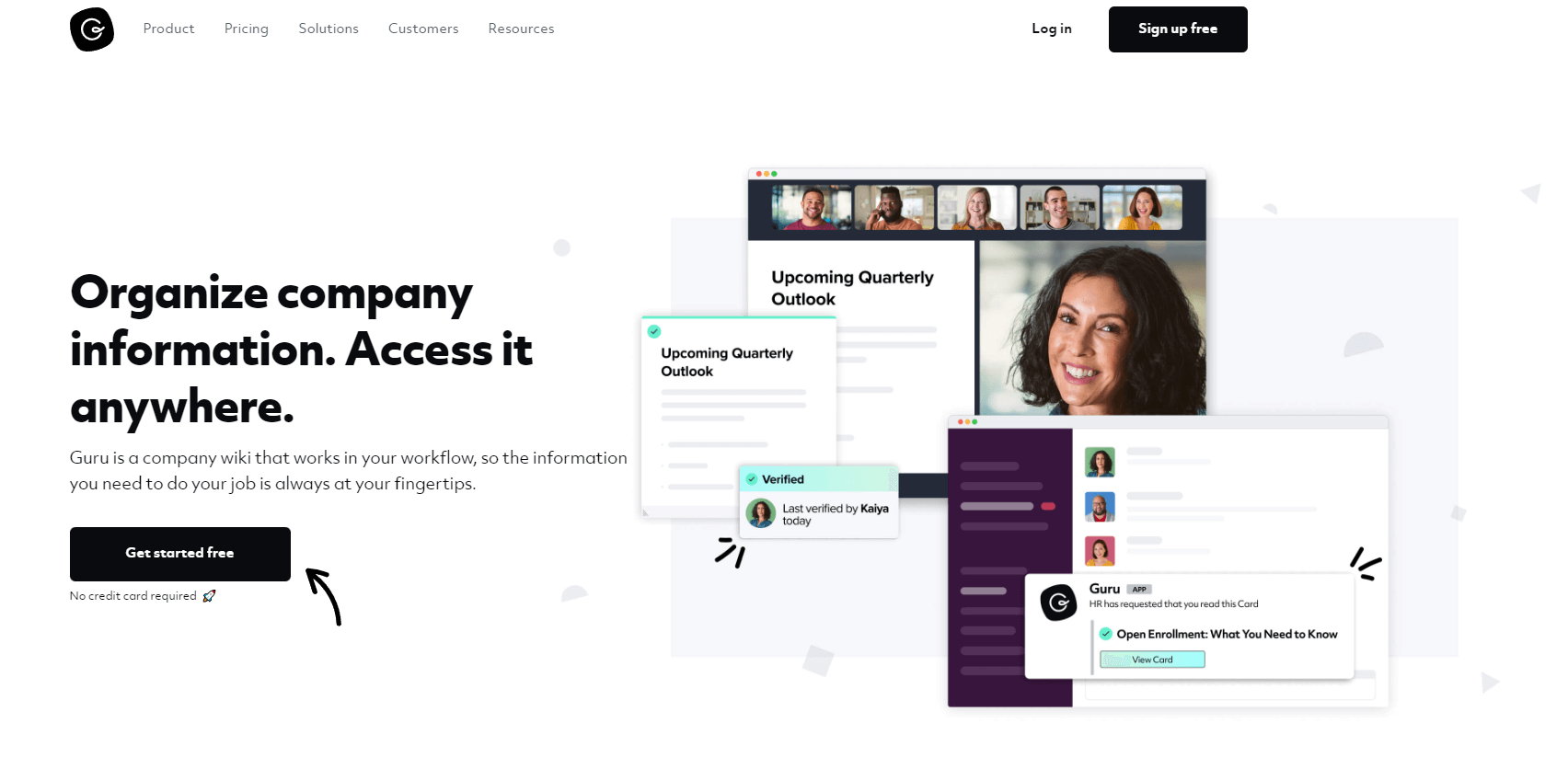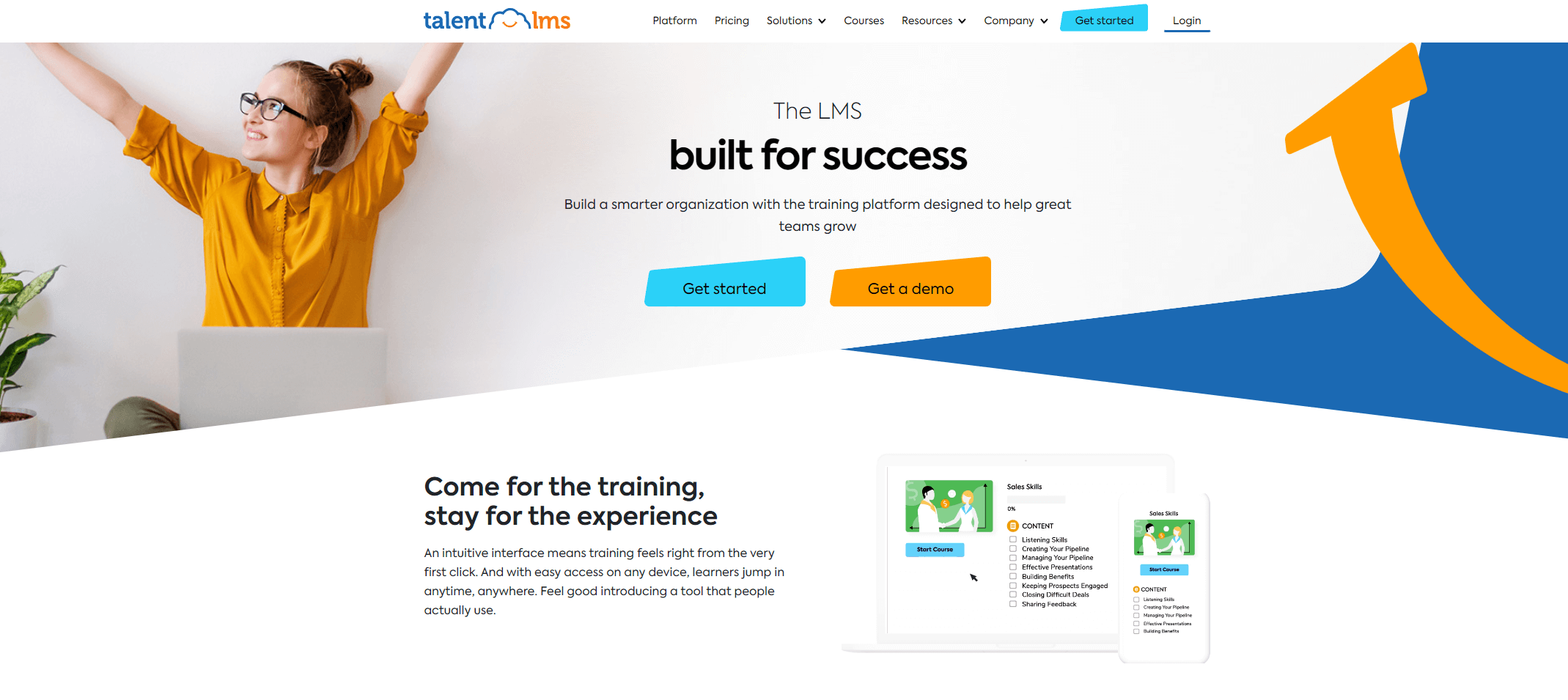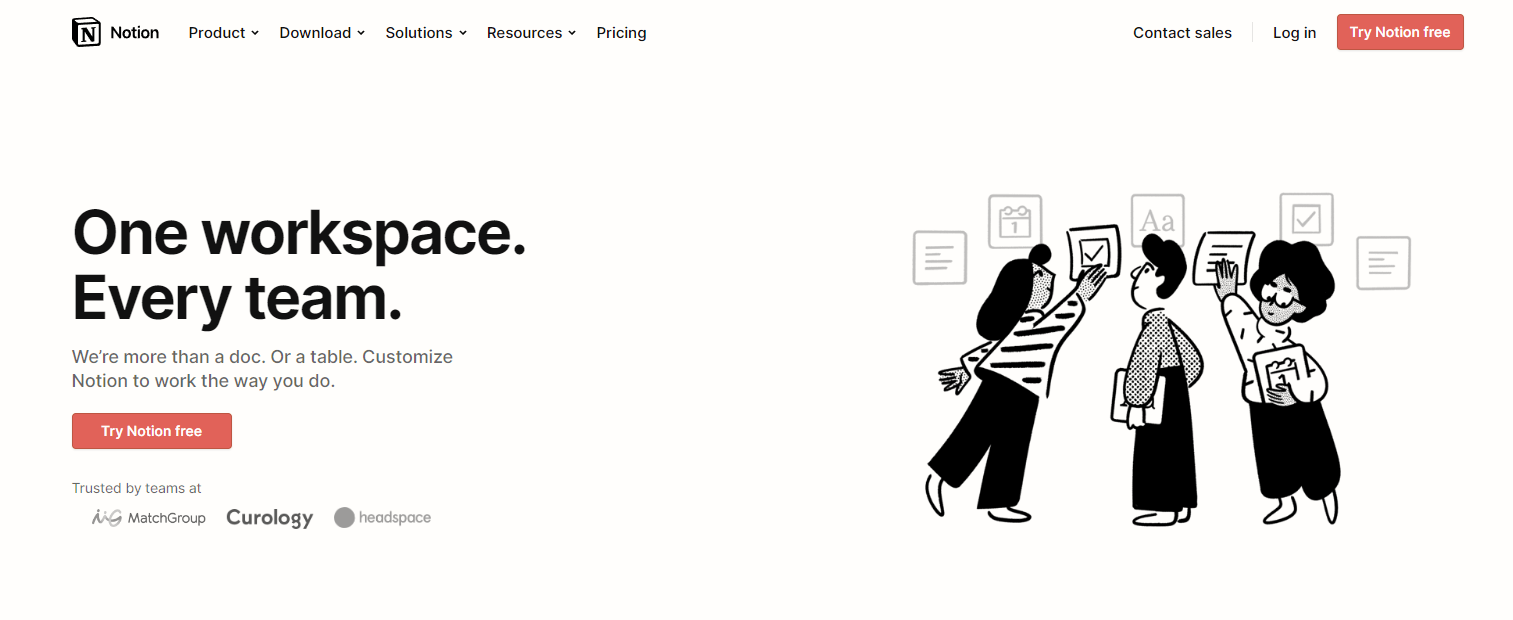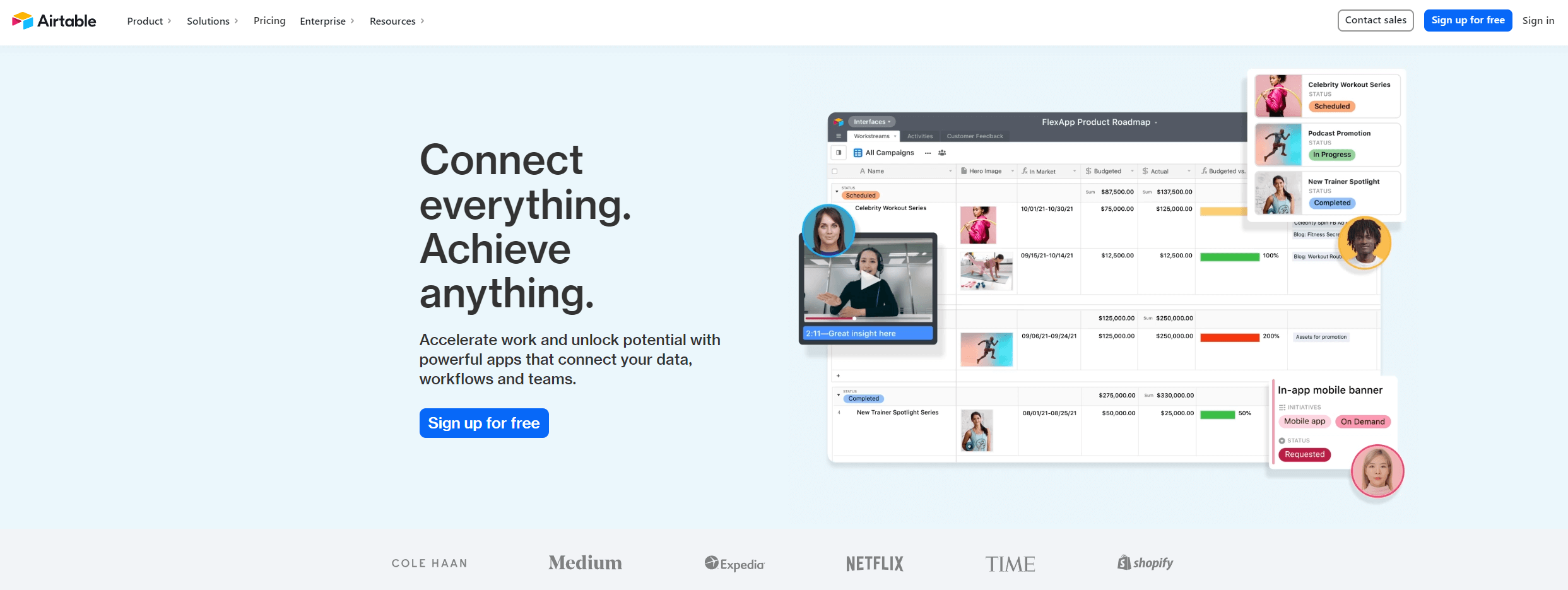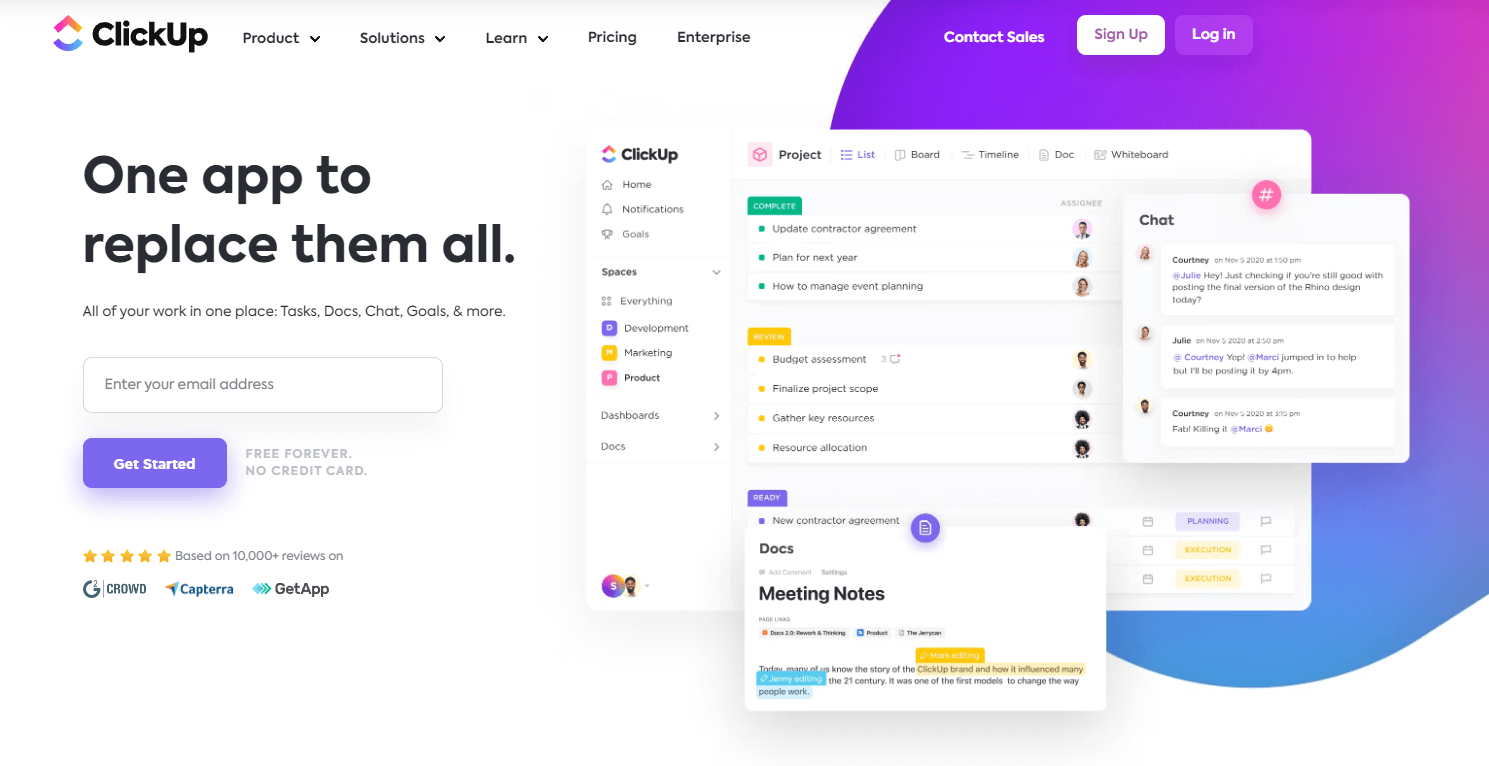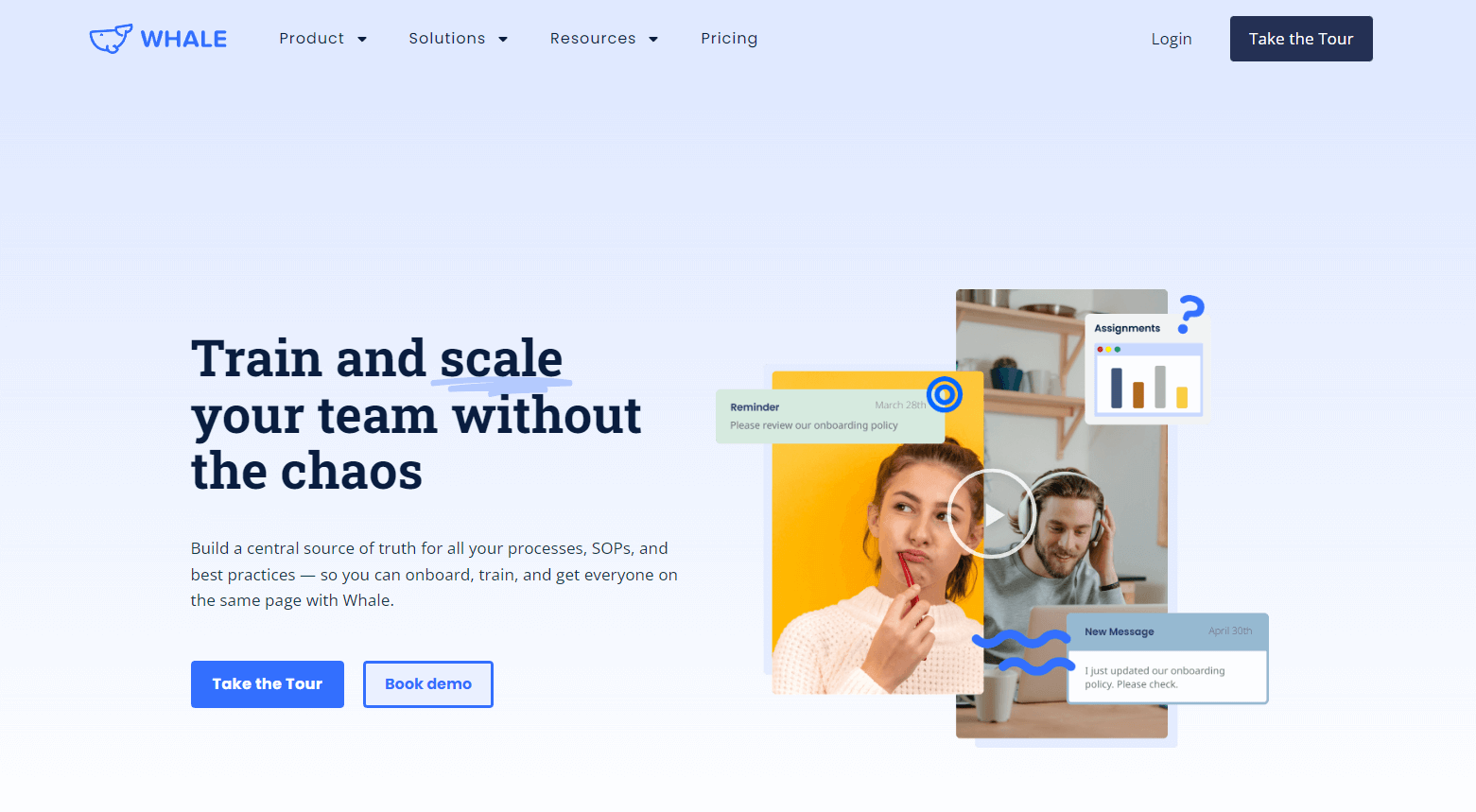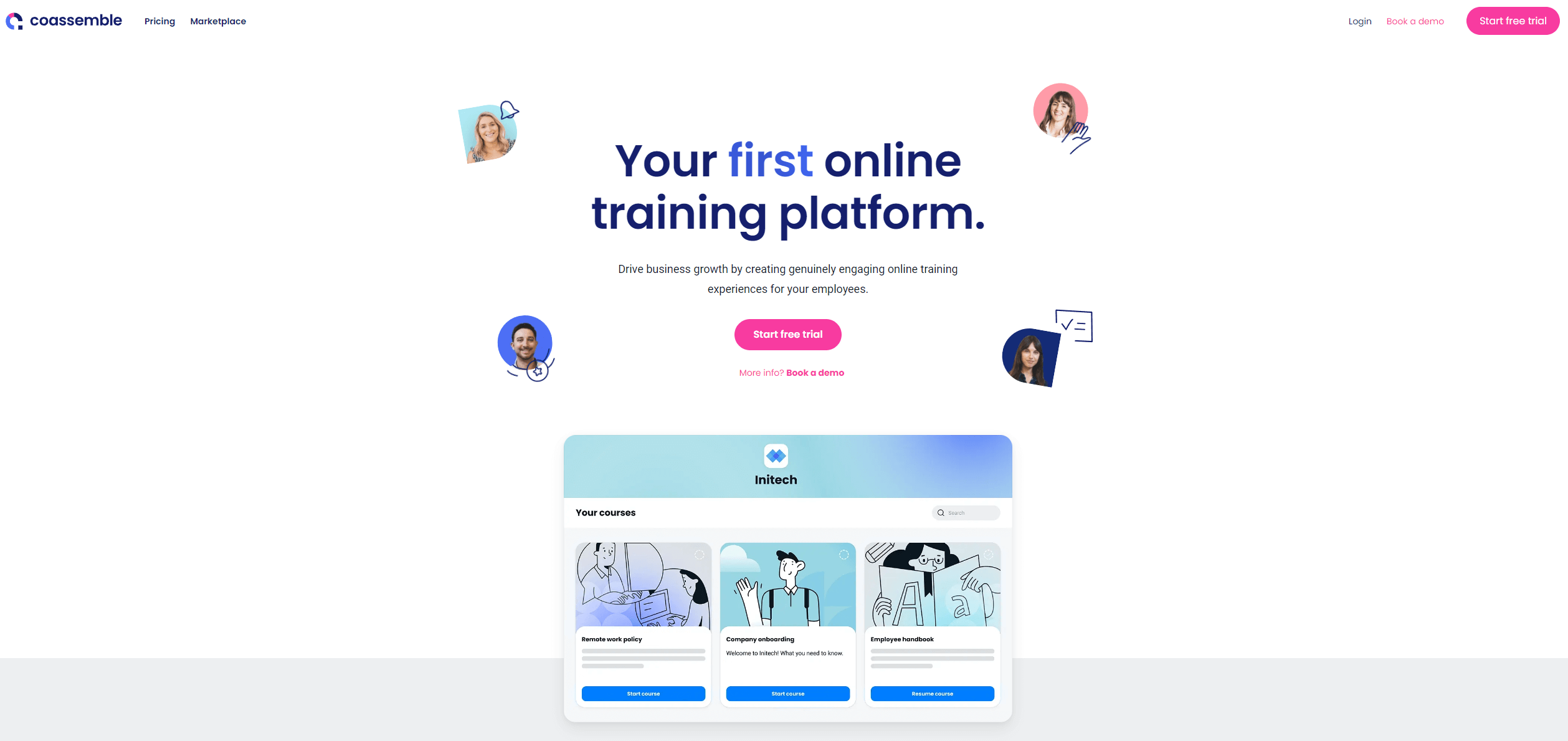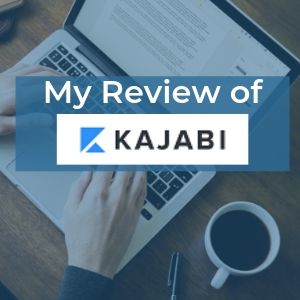I’ll be honest. I dig Trainual.
I think it’s an intuitive, easy-to-use system where you can build out training and standard operating procedure (SOP) documentation.
But it isn’t the only service that offers those features.
Let’s look at some of Trainual’s top alternatives and competitors and do a side-by-side comparison so your company can find the perfect onboarding and training software for your business.
Table of Contents
- Top Trainual Alternatives
- 1. Lessonly
- Trainual vs. Lessonly
- 2. Guru
- Trainual vs Guru
- 3. Thinkific
- Trainual vs Thinkific
- 4. Google Docs
- Trainual vs Google Docs
- 5. TalentLMS
- Trainual vs TalentLMS
- 6. Notion
- Trainual vs Notion
- 7. Airtable
- Trainual vs Airtable
- 8. ClickUp
- Trainual vs ClickUp
- 9. Whale
- Trainual vs Whale
- 10. Playbook Builder
- Trainual vs Playbook Builder
- 11. Coassemble
- Trainual vs Coassemble
- FAQs
We offer this website completely free to our visitors. To help pay the bills, we’ll often (but not always) set up affiliate relationships with the top providers after selecting our favorites. However, we do our best not to let this impact our choices. There are plenty of high-paying companies we’ve turned down because we didn’t like their product.
An added benefit of our relationships is that we always try to negotiate exclusive discounts for our visitors.
Top Trainual Alternatives
1. Lessonly
Learn MoreLessonly by Seismic offers sales training and coaching software to companies looking to seriously ramp up speed and productivity with new reps.
The software offers features like on-demand practice exercises for new hires to get practice on their own time, personalized coaching to fit each employee’s unique learning style, and seamless integration with the next steps of sales management through Seismic.
Their basic plan starts at $200 per month and includes a client experience manager, custom branding, resource lessons, PDF exporting, a learning library, and a monthly user limit of up to 100 users.
The plus plan is $500 per month and includes all of the above plus automation, API, single sign-on, integrated screen recording, and up to 300 users. To use all of the features Lessonly has to offer, go with the growth level at $1,000 a month.
Trainual vs. Lessonly
Though their services are very similar, Lessonly is considered easier to set up, and users like that new hires have access to practice modules 24/7.
In general, Lessonly is a bit more expensive and less customizable than Trainual, which makes it a better fit for companies with larger budgets who want pre-made templates and don’t need customizations.
2. Guru
Learn MoreFeatures include collections and boards to allow your team to communicate in one place, a browser extension to access information wherever you work, Slack integration, capture features to easily import information from other places, and employee onboarding, among others.
Pricing is done per user with a starter plan that includes a browser extension, Slack & Microsoft Teams App integrations, and verification. The starter is free for teams of 3 or less and starts at $5 per user per month for teams of 4 or more.
The Builder plan is $10 per user per month and includes everything in the starter plan plus advanced permissions, knowledge alerts, analytics, duplicate detection, and knowledge triggers.
The Expert plan is $20 per user per month and includes everything in the Builder plan plus AI suggest text, AI suggest expert, and ticket linking.
Trainual vs Guru
The biggest difference between Trainual and Guru is their general market share; Guru is used by mid-sized companies, and Trainual is better used by smaller businesses.
Overall, we would recommend Guru for larger businesses with evolving strategies who need large boards to communicate with each other, and Trainual for smaller businesses with smaller budgets.
3. Thinkific
Learn MoreAs a well-established player in the virtual onboarding and training game, Thinkific offers a large variety of features that companies of all sizes can find useful.
Some of these features include the option for live lessons, unlimited video, assessments for training, and communities to exchange ideas between employees. They also offer all of the tools necessary to build a business including customizable websites, eCommerce solutions, and sales tools.
Thinkific offers both a free trial and free version of its services to small companies that only need one admin.
The Start plan is $99 per month and includes 1 site admin accounts, email support, private and hidden courses, completion certificates, single communities, live lessons, advanced course building, and Thinkific academy pro courses.
The Grow package is $199 per month and includes things like analysts, groups, an onboarding package, white labeling, and API.
- Read our Thinkific Review
Trainual vs Thinkific
Trainual is generally used for companies who need to centralize their SOP and make onboarding and training new hires easier.
Thinkific, on the other hand, seems to be better suited for academic institutions and educational resources.
4. Google Docs
Learn MoreFor business owners who are just starting out and looking for an entirely free way to keep track of important company information, there’s always good old Google Docs.
With Google Docs, you can create things like SOPs, folders for sharing information and work, and use sheets to keep track of deadlines and other moving parts. Google Docs makes it easy to share access to these documents in a “view-only” or editing format.
Though Google Docs itself is free, businesses have the option to upgrade to “G Suite” or Google Workspace, which are premium plans that start at just $5 per month.
Trainual vs Google Docs
For small businesses or solopreneurs who are just starting out and have few team members that they need to share ideas with, Google Docs is a great option offered at no cost. There are limitations to Google Docs that don’t allow for a simple or trackable workflow.
Trainual is better suited for businesses who want to automate parts of their workflow and make it easier to communicate with their teams.
5. TalentLMS
Learn MoreThe software offering services that are the most similar to Trainual is TalentLMS.
TalentLMS has an intuitive interface from the admin side that makes it easy to set up new courses. They offer onboarding training, compliance training, customer training, partner training, and sales training.
TalentLMS offers a free plan for up to 5 users, up to 10 courses, and unlimited email support. After that, the starter plan will cost $69 per month (billed annually) and includes unlimited courses for up to 40 users.
The basic plan is $149 per month for up to 100 users, single sign-on support, a custom domain and SSL, and one branch.
The Plus plan is their most popular at $279 per month for up to 500 users and more features, and the most all-inclusive plan is the premium for $459 per month for up to 1,000 users.
Trainual vs TalentLMS
TalentLMS and Trainual are both training software with a focus on providing services to small businesses, making them pretty much directly comparable.
If you do have a smaller business or a tighter budget, TalentLMS does offer smaller plans for lower prices (though you won’t have quite as many features as Trainual has to offer).
6. Notion
Learn MoreNotion is a workspace that allows businesses to centralize things like training, communication, and the organization of tasks and deadlines.
Companies can use Notion’s features like an employee directory, meeting notes that are available to all employees, discussion boards, roadmaps to track and hand off projects, and various company policies, to streamline all business functions.
Notion has a free personal plan and includes unlimited pages and blocks, API, and the ability to share with 5 guests. There’s a personal pro plan for $4 a month that allows unlimited guests and file uploads, as well as 30-day version history.
The team function is $8 per month and allows for unlimited team members, a collaborative workspace, sharing permissions, and admin tools. They also have enterprise options for larger companies that need to centralize more tasks.
Trainual vs Notion
Trainual is generally used to help companies train new employees and create SOPs. Notion, on the other hand, is more focused on collaboratively tracking workflow.
We recommend Notion for people who want a shared workspace to keep track of documents or individuals who want to get more organized with their workflow. If you’re looking for a way to streamline training, we recommend going with Trainual.
7. Airtable
Learn MoreAnother workstream software that more closely resembles Notion than Trainual, Airtable offers integration with Trainual.
Airtable is a workflow program that allows employees to see progress in real-time, track what’s next in the pipeline, and communicate with your team about upcoming deadlines.
Airtable is free for individuals or very small businesses and includes unlimited bases, up to 5 creators or editors, unlimited commenter & read-only users, one extension per base, one sync integration, 1,200 records per base, and 2GB of attachments per base.
The plus version of the software is $10 per seat each month and includes three extensions per base, three sync integrations, 5,000 records per base, 5GB of attachments per base, custom branded forms, 6-month revision & snapshot history, and automatic table syncing.
The pro version is $20 per seat each month and includes ten extensions per base, seven sync integrations including Jira Cloud, 50,000 records per base, 20GB of attachments per base, Gantt & Timeline Views, 1-year revision & snapshot history, personal & locked views, and field & table editing permissions.
Trainual vs Airtable
Airtable is a workflow, project-tracking software in contrast to Trainual, which is more focused on training and onboarding processes.
You can integrate Trainual with Airtable to use both!
8. ClickUp
Learn MoreWith the tagline “one app to replace them all,” ClickUp promises users a comprehensive, all-inclusive workflow all in one app.
With ClickUp, users can keep important documents, keep up with tasks, use the chat function to communicate between team members, set goals, and more from the app. ClickUp also offers training and HR paperwork, as well as marketing organization tools, all in one place.
ClickUp has a free version for personal use that includes things like 100MB of storage, email in ClickUp, unlimited tasks, collaborative docs, native time tracking, and more. Their pricing model also charges per user, with plans starting at $5 per user for small businesses, $12 for mid-size teams, and $19 per person per month for large teams.
Trainual vs ClickUp
ClickUp is more all-inclusive than Trainual, and it has a free version, which Trainual does not offer.
However, some users say that ClickUp isn’t worth the hassle for individual users, as the interface is a bit more complicated to learn.
Trainual is better for companies with at least a few employees who want an easy, straightforward setup.
9. Whale
Learn MoreWhale is considered a knowledge-sharing and training platform that also has information management capabilities.
Features include a smart editor to create and organize SOPs in a way that makes sense, formatted training and new hire orientation templates, and content tracking with review cycles and version history logging. Unlike most others on this list, Whale does not have mobile apps.
Pricing is done per user and starts at $12 per user per month, which includes at least ten seats, unlimited content, Google and One Drive integration, and a browser extension. Their “Scale” plan has custom pricing depending on the scope of the company and needs.
Trainual vs Whale
Both Trainual and Whale offer centralized SOPs, onboarding, and training modules.
Whale unfortunately does not offer an app and offers services that best serve small to medium-sized businesses, whereas Trainual has options for large businesses and enterprises.
10. Playbook Builder
Learn MorePlaybook Builder helps businesses build playbooks. This means creating and centralizing all major functions of a business.
Playbook Builder’s features include visual playbooks for company policies regarding onboarding, sales, administrative procedures, human resources, marketing, and work-from-home. You can use their templates and easily plug in your information, videos, images, and interactive aspects.
Playbook Builder is a little on the pricier side, starting at $249 per month for up to 50 users and ranging up to $700 or more for 500 users.
Trainual vs Playbook Builder
Trainual and Playbook Builder offer very similar services, with Playbook Builder geared mainly toward small and mid-sized businesses.
Playbook Builder has features specifically for eCommerce that Trainual lacks, but Trainual has the capabilities to be used in education and academia where Playbook Builder does not.
11. Coassemble
Learn MoreBy focusing solely on training and policy information, Coassemble has created e-learning and training solutions for companies of all sizes.
Features include things like onboarding, employee handbooks, policies, training, and HR paperwork.
Coassemble’s pricing is competitive with Trainual’s, with the “Pro 10” plan starting at $50 per month. This plan allows up to 10 users access to all of Coassemble’s pro features and a 1:1 training session.
The Pro 20 plan starts at $120 per month, and their most inclusive plan (Premium 20) is $160 per month.
Trainual vs Coassemble
Trainual and Coassemble offer comparable services at comparable prices, both gearing their services toward smaller businesses.
Many reviewers claim that Coassemble was a bit easier to set up and get started.
FAQs
What is Trainual?
Trainual is a cloud-based software that allows companies to centralize SOPs and streamline onboarding and new employee training.
What is the best Trainual alternative for a small business?
TalentLMS is the best Trainual alternative for small businesses as it offers a free plan for folks with 5 or fewer employees.
What is the best Trainual alternative for enterprise?
The best Trainual alternative for enterprises is Airtable.
What is the most affordable Trainual alternative?
The most affordable Trainual alternative is Google Docs, which is free.














